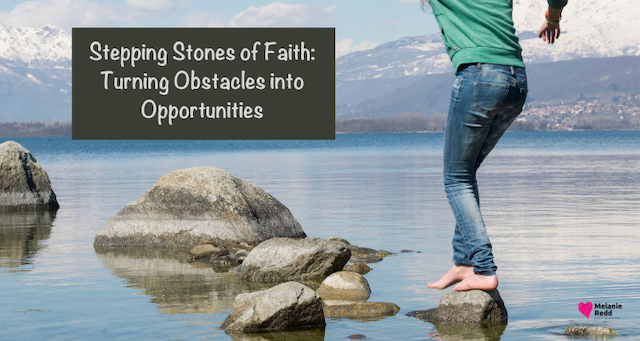The Trauma Survivor’s Guide to Body Image: Eating Disorders, Insecurity, and Everywhere In-between

I am convinced that body image issues are a trauma all on their own.
Many days of my life have been consumed by them. It has robbed me of my joy and peace. It has taken the fun out of events, and it has rented way too much space in my mind. All of these “symptoms” sound like I am talking about something very serious, so in my opinion, it’s trauma.
The issue at hand is why do we look at our bodies and develop these problems? When does the shift in childhood or adolescence take place, or was it from an event where you felt like your body was violated? Whatever the case, body image issues often leave an imprint on our self-esteem for years to come.
All of these “symptoms” sound like I am talking about something very serious, so in my opinion, it’s trauma
For me, I “developed” very quickly as a young girl. My body looked like a woman’s before I ever hit my teenage years. Kids can be cruel, and my figure was often up for discussion. I now see that developing young can cause extreme body issues because your mind is still innocent as a child, and yet, your shape is being dissected as an adult. You mix that with parents who did not like to talk about personal topics, a father who had what could be called a phobia of menstruation (so fun for a teenage girl!), and conflicting messages of sexual movies and magazines being within our exposure, and it was the perfect breeding ground for severe mental warfare regarding my body.
I have tiptoed this line of being confident with my curvy build and wishing I was shaped differently throughout my entire life. It’s not easy for me to lose weight. I am not naturally thin, and I have to work out regularly and eat well to even be still considered overweight. Add three pregnancies with babies all weighing nine-plus pounds, and you get a body that’s been stretched to the max.
Another element of my body image issues is the trauma that I have endured. I have prayed a lot through my healing and recovery for God to reveal those hidden things to me. He showed me that my body wasn’t just exploited sexually, but the physical abuse and feeling of being trapped physically and mentally caused me to disassociate from my body. How can you feel a connection with the outward parts of you when you live in a constant state of fear that they are going to be violated? It’s hard to love your body when you feel detached from it, or even worse like it’s not your own.
How can you feel a connection with the outward parts of you when you live in a constant state of fear that they are going to be violated?
Constant states of trauma also lead to inflammation, aches, pains, and other physical symptoms. When your mental health is not taken care of, the body can send off “alarms” in the form of somatic conditions. Feeling a lack of energy, inflamed, and achy does not cause us to feel confident. This can play mental games with our body image as it did mine.
Many people also run to food for comfort from traumatic situations. This can lead to binging, food addiction, and even eating disorders in serious situations. Those at risk for eating disorders, including body dysmorphia, tend to have childhood trauma, and those conditions change the chemistry of the brain to believe hard-wired thoughts such as food being a reward, a lack of food being a punishment for our “bad behavior” of eating too much, or starving oneself as form of control when the person feels like they have lacked it over their lives because of their trauma. It’s incredibly deep, and although your body image issues may not be that severe, Satan roams and deceives in numerous ways, and we must be diligent in our healing so that we don’t fall prey to him.
So, how do we change these strongholds that have held us captive for so long? How do we take the pain away from self-hatred or body image issues? It starts with acknowledging the problem, to begin with. I believe it’s okay to know that we may continue to have “those days” where we do not feel so hot. Hormones can be our biggest barrier at times in life, especially for women. We are allowed to not always be okay, but there must be a point where a bad day doesn’t turn into a bad week or a bad month, and suddenly, we have a stronghold in our lives.
It’s incredibly deep, and although your body image issues may not be that severe, Satan roams and deceives in numerous ways, and we must be diligent in our healing so that we don’t fall prey to him.
Recovery may take more drastic measures than just positive self-talk. Some may need to completely change the reward receptors in the brain that believe food is the ultimate prize for a job well done. Some may have to rewire using a lack of food or over-exercising to feel powerful or in control. Others may need to heal from the sexual abuse that causes them to overindulge when eating to “make them unattractive” to anyone ever wanting them sexually again. Therapy can help all these issues and more, including changing the perspective of what we see when we look in the mirror, whether it’s an occasional off day or full-blown body dysmorphia. There is absolutely no shame in getting the mental help that you need.
We are allowed to not always be okay, but there must be a point where a bad day doesn’t turn into a bad week or a bad month, and suddenly, we have a stronghold in our lives.
Above all else, your body is the temple of the Holy Spirit. When we take a moment to marinate on that, it’s hard to hate that body that God intricately knit together in your mother’s womb. How can we despise the artwork of our Heavenly Father? He knows us, inside and out. We will never be perfect, but man, are we loved.
You are a beautiful masterpiece even if you don’t always feel like it.




